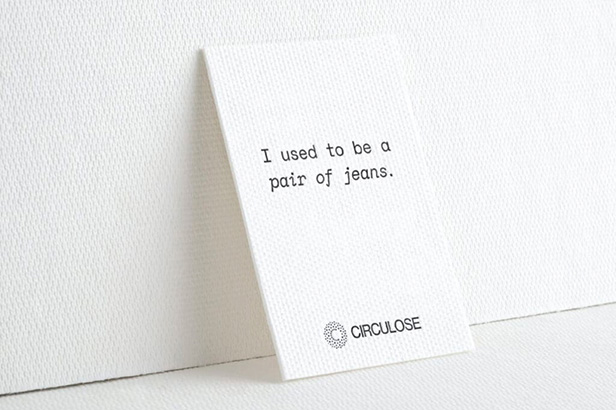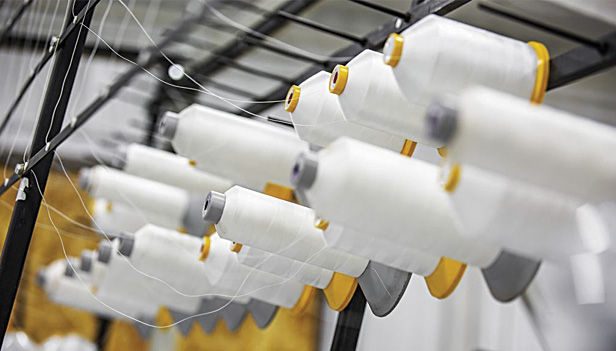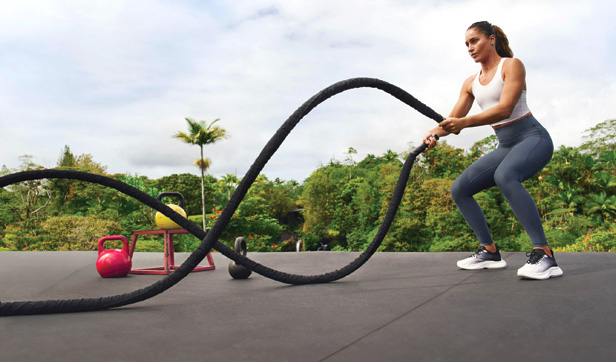March 15, 2024
Advancements – and Setbacks – in the World of Circular Fashion
On the heels of a well-regarded textile recycling company declaring bankruptcy, several other high-profile circular partnerships have been announced.
Last month, a much-championed circular fashion company filed for bankruptcy, prompting concern that textile recycling was going out of style.

Circulose is a branded dissolving pulp made from 100% textile waste with high cellulose content (such as worn-out cotton jeans), which then is transformed into viscose, lyocell, modal and other types of regenerated fiber.
Swedish company Renewcell, which makes a viscose fabric called Circulose derived from worn-out cotton jeans and cutting-room scraps, said it had failed to secure the necessary funding to continue operations. “This is a sad day for the environment, our employees, our shareholders and our other stakeholders,” said Michael Berg, chairman of Renewcell’s board of directors. “It is a testament to the lack of leadership and necessary pace of change in the fashion industry.”
After announcing the bankruptcy, the company noted in a LinkedIn post that there was still enough supply of Circulose to meet the projected needs of brands and suppliers for the next 18 months to two years through its fiber producers and partnerships with yarn spinners, weavers, knitters and garment manufacturers. Circulose has been used in clothing from brands like Levi’s, Tommy Hilfiger and Zara. Fast fashion brand H&M also backed Renewcell’s efforts, agreeing to buy 18,000 tons of the textile over the next year, according to GreenBiz.
Even amid the bad news from Renewcell, there are bright spots to focus on. For example, a court-appointed administrator released a statement noting that he sees good opportunity for acquisition and continued operation of the business after the bankruptcy procedure is finished.
“Is this the end for circular fashion? Absolutely not,” Ashley Holding, principal consultant at Circuvate in Frankfurt, Germany, told GreenBiz. “Innovators will surely learn from Renewcell’s mistakes.”
The idea of creating a circular economy – where waste is used as the material input for new products rather than ending up in the landfill or being incinerated – has been gaining traction in recent years, particularly for apparel brands looking to burnish their image and up their sustainability efforts.
In fact, in the weeks after Circulose’s bankruptcy news broke, several brands have released announcements about new circularity partnerships and investments.
H&M Group Launches Effort To Scale Textile-to-Textile Recycled Polyester

Syre, a new venture backed by H&M Group, is working on closed-loop, textile-to-textile recycled polyester.
H&M Group, along with impact-focused investor Vargas, is backing Syre, a new company aimed at building a closed-loop textile recycling operation. The venture is kicking off with a $600 million agreement for recycled polyester over seven years.
With Syre, H&M Group is hoping to shift the fashion industry away from not only virgin polyester, but also away from the bottle-to-textile recycling that has become an industry standard. The company is banking on Syre producing a closed-loop alternative to the recycled polyester (rPET) that many brands are using.
“With this solution to rapidly scale textile-to-textile recycling, we want to continue to drive and inspire more industry players to join us in closing the loop and accelerating the shift toward a more sustainable future,” said Daniel Ervér, CEO of H&M Group.
In addition to backing Syre, H&M Group also announced plans to strengthen its recycled material ambition, aiming to have 100% of materials used either recycled or sustainably sourced by 2030, with the subgoal of 30% by 2035.
Syre is building a production plant in North Carolina – which has become a hub for sustainable textile innovation – with the intention of becoming operational this year. Within 10 years, the company aspires to have 12 plants up and running across the globe, producing more than 3 million metric tons of recycled polyester.
“By implementing true textile-to-textile recycling at hyperscale, we want to drive the transition from a linear to a circular value chain by putting textile waste to use, over and over again,” said Dennis Nobelius, CEO of Syre.
Athleta To Leverage Textile-to-Textile Recycled Materials

Athleta is planning to scale the use of recycled polyester cycora beginning in 2026.
Performance apparel brand Athleta, owned by Gap Inc., announced recently that it would be using recycled polyester material cycora at scale beginning in 2026.
Cycora, created by Ambercycle, is a regenerated polyester created from end-of-life textiles. Ambercycle says it uses a proprietary molecular regeneration technology to turn discarded polyester feedstock into a high-performance material that reproduces the quality of virgin-grade polyester, while reducing industry greenhouse gas emissions.
“As a mission-driven, B Corp-certified brand, Athleta is committed to reducing our environmental footprint by using recycled materials like cycora, which not only aligns with our values but also meets our uncompromising quality standards,” said Chris Blakeslee, CEO of Athleta and a former member of Counselor’s Power 50 while serving as president of Bella + Canvas (asi/39590).

Promo for the Planet is your destination for the latest news, biggest trends and best ideas to help build a more sustainable and socially-responsible industry.
